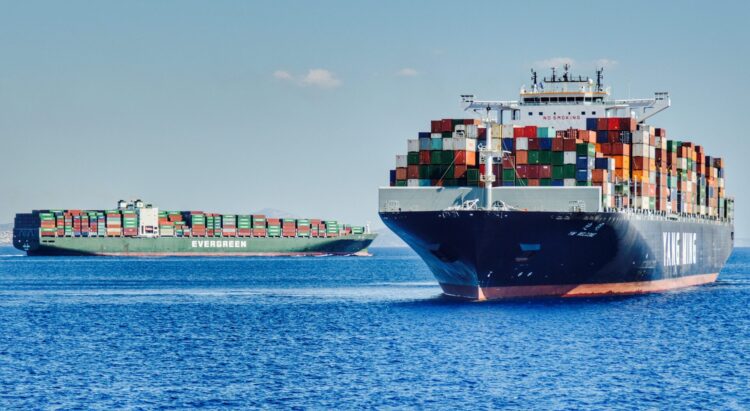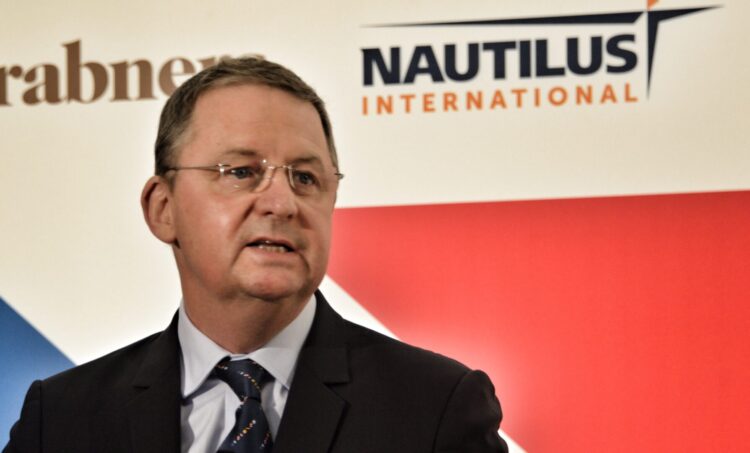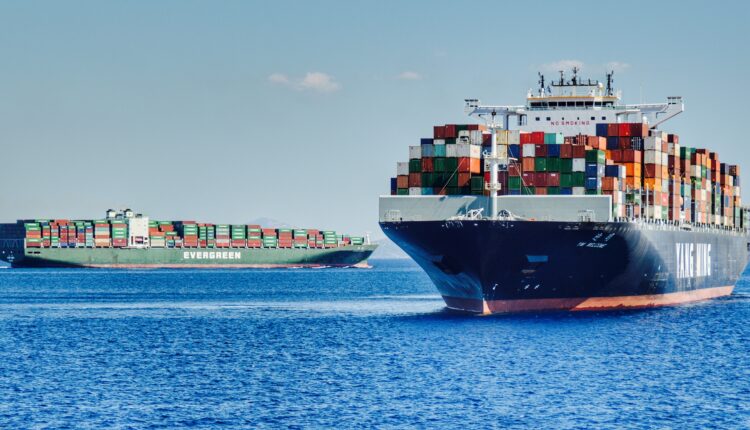Seafarers have paid ‘a heavy price’ during COVID-19
At a major maritime conference in Merseyside the head of the seafarers union said 1.6m seafarers across the world had endured a ‘brutal’ pandemic and is calling for urgent change. Tony McDonough reports

UK ministers are being urged to help end the disgraceful treatment of 1.6m seafarers around who have endured dreadful working conditions for decades.
Addressing the national Maritime Exchange conference, held in Birkenhead, Mark Dickinson, general secretary of seafarers union, Nautilus International, said the dreadful treatment of those who work at sea had been “the elephant in the room for decades”.
Mr Dickinson said the situation had come to a head during the COVID-19 pandemic which left hundreds and thousands of crew members stranded at sea for months on end, thousands of miles from their families. Huge numbers on shore were also left without any income, he added.
Held at the headquarters of Mersey Maritime and broadcast live to an online audience, the Maritime Exchange, Maritime 2050: Where are we now? Was organised by Mersey Maritime in partnership with the Department for Transport and Maritime UK. It debated the progress of the UK’s Government’s Maritime 2050 report.
The conference was sponsored by Brabners, Nautilus International, OPS Wind, and Peel Ports Group. And it was supported by Wirral Council. And it also coincided with the International Day of the Seafarer.
Among those in attendance was Maritime Minister Robert Courts and he heard Mr Dickinson praise the UK Government for being the first to recognise seafarers as key workers during the pandemic.

“The UK Government did recognise seafarers as key workers but only 58 countries around the world followed that lead… we have to ask ‘what kind of future do we want for our seafarers?’.”
Mr Dickinson was born in Wirral and first went to work at sea when he was 16, more than 40 years ago. He added: “It is a fantastic industry. International Day of the Seafarer is about recognising the invaluable contribution the world’s 1.6m seafarers make to our lives.”
The Maritime Exchange was focused on progress on the Government’s Maritime 2050 report that was published in 2019 and sets out the future of the industry over the coming three decades. Mr Dickinson said the welfare of seafarers had to be a key part of that future, adding: “We must not forget the seafarers.
“During the pandemic, the impact on people working at sea was brutal. The cost they paid for keeping us supplied was huge. Seafarers and their families have continued to be denied their rights. Here at Nautilus we believe any plan for the maritime sector must be built on the foundations of fairness.
“Widespread malpractice in how seafarers are treated has been identified and many of these issues go back decades. The hours they have to work without rest has been the elephant in the room for a long time.”
Mr Dickinson raised five key issues he said urgently needed to be address:
- Seafarers need to be recognised as key workers all over the world.
- A fairer workplace with much better working conditions.
- An overhaul of the ‘flags of convenience’ system. Mr Dickinson points out that during the pandemic many countries did not fulfil their obligations under international law. He urged the Government to push for a change that would require vessels to have a “genuine link” to the country with which they are registered.
- Transition to net zero carbon must be “fair an just”. Debate around autonomous vessels had to be human-centred with a commitment to create high value jobs.
- Access to quality jobs and training for those in the industry and to attract more people and address the widening skills gap.
In his address to the conferences, Robert Courts paid tribute to the work of seafarers during the pandemic. He said: “During the pandemic we relied on seafarers like never before. They have our collective thanks for their incredible dedication.”
And, speaking via video link, Laura Marquis, deputy head of maritime operations at the Department for Transport, also gave her full support for a fairer future for seafarers across the world.
She said: “In all my years as a civil servant it is the plight of the seafarers that has touched me the most. Some of the things I have heard have been heartbreaking. We need to make sure we build back better and fairer.”
Ends

